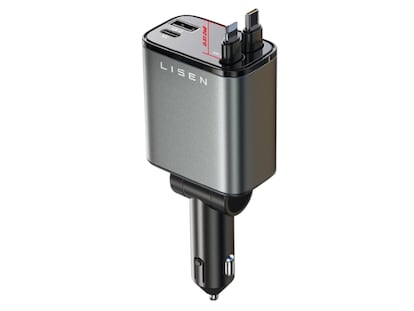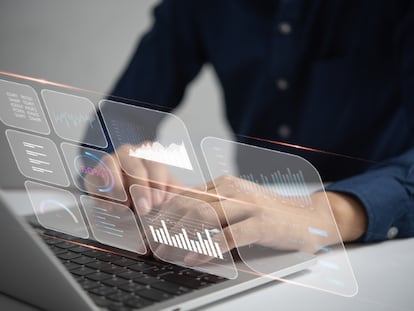Cable sobre la sorpresa de Pyongyang ante la repercusi¨®n internacional ante sus pruebas nucleares
Especialistas chinos comentan la sorpresa de las autoridades norcoreanas ante la respuesta de Rusia y China, entre otros
| ID: | 214077 |
| Date: | 2009-06-26 07:14:00 |
| Origin: | 09BEIJING1761 |
| Source: | Embassy Beijing |
| Classification: | CONFIDENTIAL |
| Dunno: | |
| Destination: | O 260714Z JUN 09 FM AMEMBASSY BEIJING TO SECSTATE WASHDC IMMEDIATE 4839 INFO AMEMBASSY TOKYO AMEMBASSY SEOUL AMEMBASSY MOSCOW CIA WASHINGTON DC JOINT STAFF WASHINGTON DC DIA WASHINGTON DC CDR USPACOM HONOLULU HI OSD WASHDC DEPT OF TREASURY WASHINGTON DC NSC WASHDC |
C O N F I D E N T I A L BEIJING 001761 E.O. 12958: DECL: 06/26/2034 TAGS: PREL, PGOV, PARM, KNNP, MOPS, EFIN, KN, KS, CH SUBJECT: PRC/DPRK: CHINESE SCHOLARS ON UNSCR 1874 AND POSSIBLE NEXT STEPS FOR CHINA AND WASHINGTON Classified By: Deputy Political Section Chief Ben Moeling. Reasons 1.4 (b/d). SUMMARY ------- 1. (C) Chinese scholars in recent conversations with PolOff said that Pyongyang's response to UNSCR 1874 had been "tepid" so far and that North Korea's domestic political situation did not appear to be tense. The DPRK had not anticipated such a strong reaction to its nuclear test from the international community, especially from China and Russia. Several contacts insisted that the Six-Party Talks were "not dead yet" and remained a good framework to discuss the DPRK nuclear issue. Although Seoul and Tokyo would likely urge Washington to take a harder line on the DPRK, Chinese scholars urged the United States to take the lead on resolving the North Korean nuclear problem and not be "led by the nose" by its treaty allies. One contact proposed a U.S.-PRC-Russia trilateral dialogue to generate new ideas on the future of Northeast Asia. In light of the threat posed by North Korea, a former MFA official said China should strengthen its export control regime and target materials related to uranium enrichment activities. He also urged Washington and Beijing to have a discussion about strengthening the monitoring of illegal financial activities during the Strategic and Economic Dialogue. End Summary. UNSCR 1874 ---------- 2. (C) Pyongyang's response to UN Security Council Resolution (UNSCR) 1874 so far, including the June 13 Foreign Ministry statement and the June 15 mass rally in Pyongyang, had been "surprisingly tepid," claimed XXXXXXXXXXXX negotiations during a XXXXXXXXXXXX discussion. Pyongyang's threats to weaponize plutonium and begin enriching uranium were "empty threats" and it was clear that North Korea had run out of leverage. XXXXXXXXXXXX opined that the DPRK had miscalculated and had not anticipated that there would be such a strong reaction to its nuclear test from the international community, including China and Russia. Pyongyang, he added, was "scared" of U.S. military pressure. 3. (C) XXXXXXXXXXXX noted in a XXXXXXXXXXXX conversation with PolOff that senior North Korean leaders, including officials from the influential National Defense Commission, were noticeably absent from the Pyongyang rally protesting UNSCR 1874 that had been attended by tens of thousands North Koreans. This signaled to XXXXXXXXXXXX that the domestic situation was not that tense. 4. (C) Pyongyang, said XXXXXXXXXXXX, was unhappy with China's support of Resolution 1874. China would have no problem implementing UNSCR 1874 but would do so in its "own way," he added. XXXXXXXXXXXX suggested that China's enforcement would elicit a reaction from Pyongyang, and recalled that the DPRK Embassy had complained to him previously about China's strict enforcement of UNSCR 1718, especially with regard to inspection of possible dual-use items. Regarding new restrictions placed on individual North Koreans, XXXXXXXXXXXX expressed concern that it would be difficult for Chinese host organizations to confirm the details of every individual North Korean participating in a visiting delegation. 5. (C) XXXXXXXXXXXX, urged the United States and other nations not to go beyond the scope of the resolution. He noted to PolOff in a XXXXXXXXXXXX conversation that PRC President Hu Jintao had sought to have a balanced response to the nuclear test by supporting Resolution 1874 but had failed to fully please Washington or Pyongyang. Future Nuclear or Missile Tests? -------------------------------- 6. (C) Pyongyang would not conduct a third nuclear test unless absolutely necessary, according to XXXXXXXXXXXX. He predicted that North Korea was more likely to conduct a missile test, but noted that missile tests were extremely expensive for the regime. North Korea's recent nuclear and missile tests had been possible because the country had had two consecutive years of good harvests, he speculated. Six-Party Talks: "Not Dead Yet" ------------------------------- 7. (C) Several contacts insisted that the Six-Party Talks remained a good framework to discuss the DPRK nuclear issue. The Six-Party Talks were not "dead yet," said XXXXXXXXXXXX. He urged the United States not to set any preconditions on the DPRK returning to negotiations. The United States should be willing to talk to the DPRK so that Pyongyang did not become "desperate." The long-term objective was still denuclearization of the Korean Peninsula and the medium term aim was to prevent more missile and nuclear tests and a regional arms race, said XXXXXXXXXXXX. Washington Should Take the Lead ------------------------------- 8. (C) Several contacts urged the United States to take the lead on resolving the DPRK nuclear issue. Several suggested it was essential that Washington not be "led by the nose" by Tokyo and Seoul. XXXXXXXXXXXX acknowledged that, for understandable reasons, the ROK and Japan tended to take a harder line on North Korea. While the real threat to South Korea posed by the DPRK nuclear test and missile launches was minimal, he acknowledged the psychological threat the tests posed to the ROK, especially to its economy. While Washington should certainly consult with Tokyo and Seoul, it should be wary of being pushed by its allies to take a more strident position. "Harsh enforcement" of UNSCR 1874 might push Pyongyang to retaliate, cautioned XXXXXXXXXXXX. 9. (C) China was reluctant to be at the forefront of attempts to resolve this issue, assessed XXXXXXXXXXXX. Recalling Beijing's failure to prevent the first DPRK nuclear test in 2006, XXXXXXXXXXXX admitted that China had a credibility issue. He expressed hope that Washington could come up with a bold proposal to break the current deadlock. 10. (C) XXXXXXXXXXXX emphasized the importance of China-U.S. cooperation and suggested that if Washington wanted to engage in bilateral talks with Pyongyang, Beijing could help facilitate the engagement and be a mediator. XXX also suggested a possible U.S.-PRC-Russia trilateral dialogue on the future of Northeast Asia as a useful mechanism noting that all three countries were members of both the Six-Party Talks and the P5. Sustainable Security -------------------- 11. (C) XXXXXXXXXXXX suggested that Sino-American cooperation on the DPRK issue presented opportunities to address more fundamental issues such as the concept of "sustainable security." XXXXXXXXXXXX noted that the United States, despite having invested energy, money, and lives on the global war on terror, had not necessarily increased the security of the American people. In the long-term, Beijing and Washington needed to find ways to guarantee the strategic security of other countries, including North Korea. Doing so would require less investment and offer greater security returns, he suggested, emphasizing that military power alone would not resolve the DPRK issue. Peaceful multilateral processes, such as the Six-Party Talks, would be more effective, he concluded. Strengthen Export Controls and Financial Sanctions --------------------------------------------- ----- 12. (C) XXXXXXXXXXXX said China was happy to see the adoption of UNSCR 1874, but he questioned the effectiveness of the counterproliferation and financial sanctions on the DPRK regime. According to XXXXXXXXXXXX, the DPRK had a limited stock of plutonium, possibly enough for two more bombs, and did not appear to have a working uranium enrichment program yet. Thus, he concluded, Washington and Beijing should focus on preventing the further development of the DPRK's uranium enrichment program. XXXXXXXXXXXX suggested that China strengthen its export control regime and target materials that North Korea might need for its highly enriched uranium (HEU) program. XXXXXXXXXXXX advised that the current level of risk posed by North Korea's provocative behavior was "affordable" since North Korea did not have any HEU in the pipeline or have a sustainable source of fissile material. However, once Pyongyang developed its HEU capabilities, the situation would become much more dangerous and difficult to resolve, warned XXXXXXXXXXXX. 13. (C) On financial sanctions, XXXXXXXXXXXX urged the United States and China to have a discussion about strengthening the monitoring of illegal financial activities, possibly including terrorism finance, corruption, and proliferation finance during the Strategic and Economic Dialogue (S&ED). It would be more effective, cheaper and less risky to intercept financial transactions for proliferation-related materials, especially since North Korea only had a few financial outlets, than to enforce the interdiction of contraband goods, suggested XXXXXXXXXXXX. The global financial crisis had spurred international cooperation on financial matters and Washington and Beijing should take advantage of this opportunity to enhance the monitoring of illegal financial transactions. He emphasized that this type of monitoring should be done on a global scale, and not simply targeted at the DPRK, said XXXXXXXXXXXX. PICCUTA NNNN End Cable Text |
Traducci¨®n autom¨¢tica. Puede que el texto traducido no sea fiel al original
Tu suscripci¨®n se est¨¢ usando en otro dispositivo
?Quieres a?adir otro usuario a tu suscripci¨®n?
Si contin¨²as leyendo en este dispositivo, no se podr¨¢ leer en el otro.
FlechaTu suscripci¨®n se est¨¢ usando en otro dispositivo y solo puedes acceder a EL PA?S desde un dispositivo a la vez.
Si quieres compartir tu cuenta, cambia tu suscripci¨®n a la modalidad Premium, as¨ª podr¨¢s a?adir otro usuario. Cada uno acceder¨¢ con su propia cuenta de email, lo que os permitir¨¢ personalizar vuestra experiencia en EL PA?S.
?Tienes una suscripci¨®n de empresa? Accede aqu¨ª para contratar m¨¢s cuentas.
En el caso de no saber qui¨¦n est¨¢ usando tu cuenta, te recomendamos cambiar tu contrase?a aqu¨ª.
Si decides continuar compartiendo tu cuenta, este mensaje se mostrar¨¢ en tu dispositivo y en el de la otra persona que est¨¢ usando tu cuenta de forma indefinida, afectando a tu experiencia de lectura. Puedes consultar aqu¨ª los t¨¦rminos y condiciones de la suscripci¨®n digital.




























































